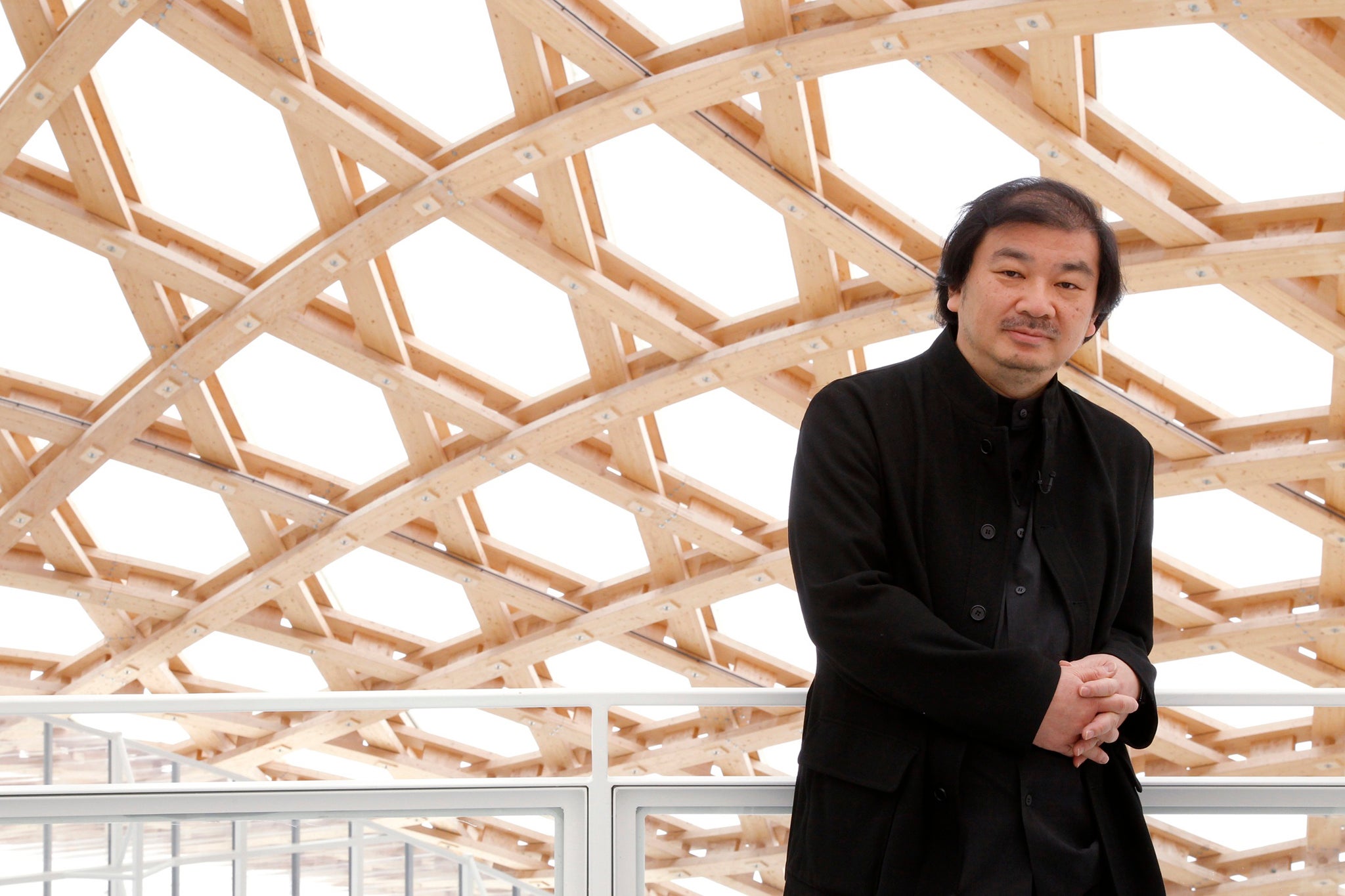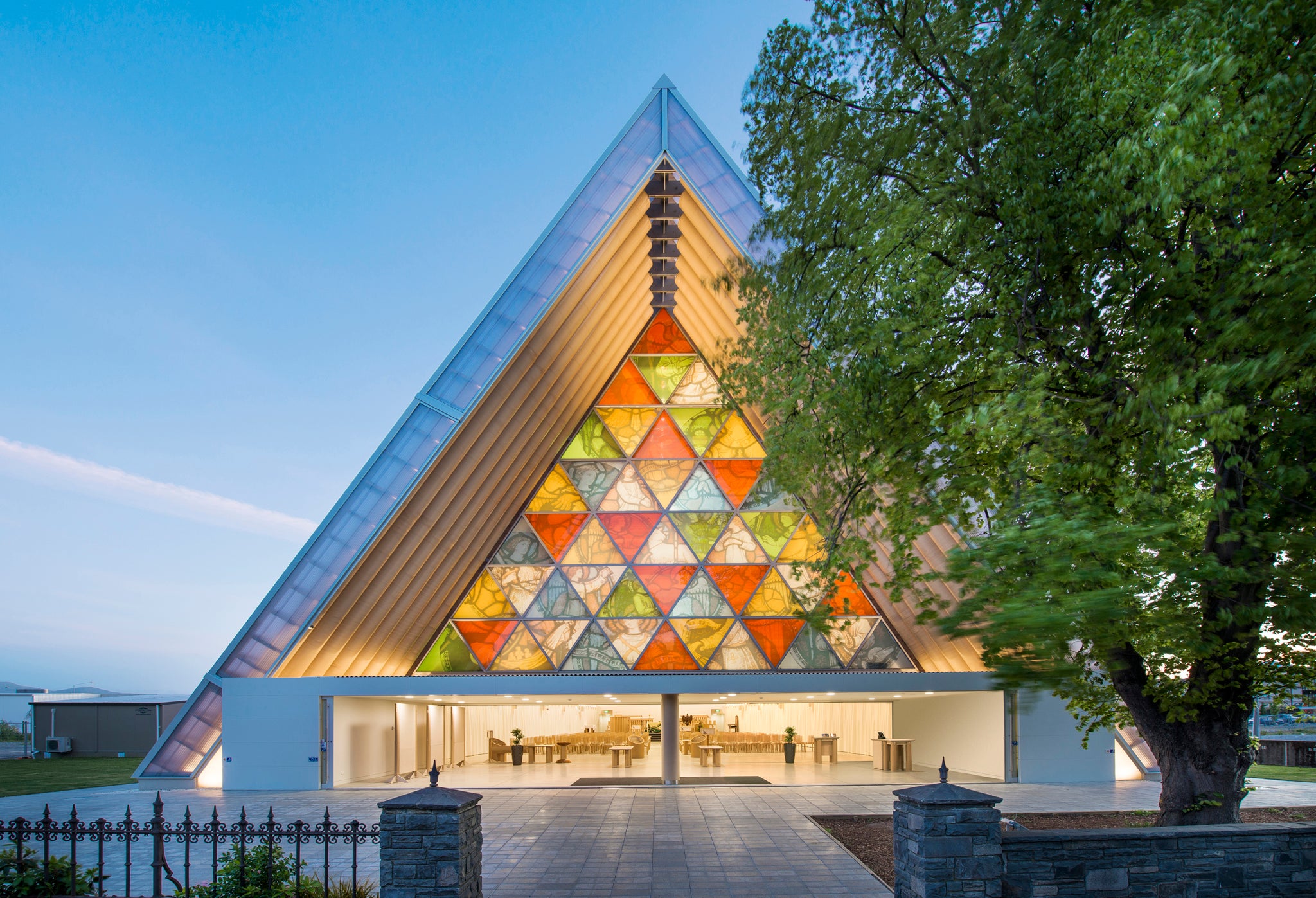Japanese architect Shigeru Ban wins 2014 Pritzker Architecture Prize
The 56-year-old was commended for his innovative use of cardboard tubes

Your support helps us to tell the story
This election is still a dead heat, according to most polls. In a fight with such wafer-thin margins, we need reporters on the ground talking to the people Trump and Harris are courting. Your support allows us to keep sending journalists to the story.
The Independent is trusted by 27 million Americans from across the entire political spectrum every month. Unlike many other quality news outlets, we choose not to lock you out of our reporting and analysis with paywalls. But quality journalism must still be paid for.
Help us keep bring these critical stories to light. Your support makes all the difference.
Japanese architect Shigeru Ban has won the 2014 Pritzker Architect Prize for his contribution to humanity and innovative use of everyday materials.
Ban, 56, was commended by the judges for his unique approach in using materials such as paper tubes, bamboo and shipping containers.
For two decades, the architect has built temporary accommodation from cardboard and paper in a number of disaster sites from the 1994 Rwanda conflict to the 2011 Japanese tsunami.
He was later hired by the United Nations as a consultant after he proposed his paper-tube shelters to the Unites Nations High Commissioner for Refugees.
After the Kobe Earthquake in 1995, he built a “Paper Log House” for the former Vietnamese refugees who could not live in the temporary houses provided by the Japanese government.
He later built a cardboard cathedral in Christchurch, New Zealand, following the 2011 earthquake.
Outside his humanitarian work, Ban's noted projects have included the Centre Pompidou-Metz, a modern art museum in Metz, France, that features a remarkable curved roof made of timber.
Judges also noted his “Naked House” in Saitama, Japan, which uses clear corrugated plastic on the external walls and white acrylic stretched across a timber frame, to create a home that questions “the traditional notion of rooms and consequently domestic life”.

But it is Ban's humanitarian work that the Pritzker jury emphasised in announcing the prize.
“Where others may see insurmountable challenges, Ban sees a call to action,” the jury said in a statement.
Born in Tokyo in 1957, Ban studied at the Southern California Institute of Architecture before setting up his own Tokyo-based practice in 1985.
Speaking about winning the Pritzker Prize, which is often referred to as the Nobel Prize for architecture, Ban said he felt he did not deserve the award.

“It’s too early. I haven’t achieved enough, so I am taking this as encouragement of my future work,” he said.
The architect added he was lucky to work in an industry where he could make people happy through creating new buildings.
“Sometimes people are so happy in my temporary shelters that they don't want to move out,” he said.
“And the same with my work for private clients. The satisfaction is the same — I just love to make nice spaces for people to enjoy.”
With additional reporting from the Associated Press
Join our commenting forum
Join thought-provoking conversations, follow other Independent readers and see their replies
Comments